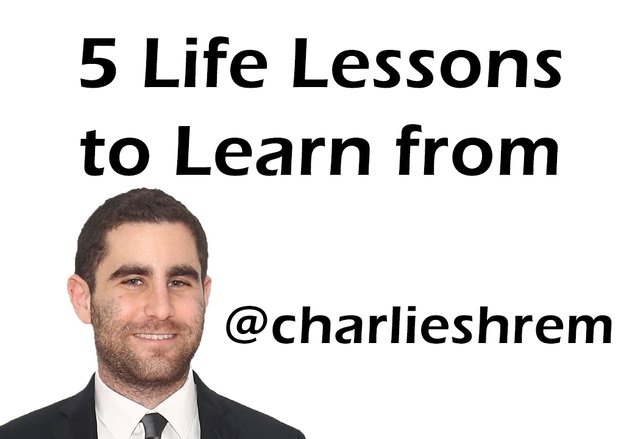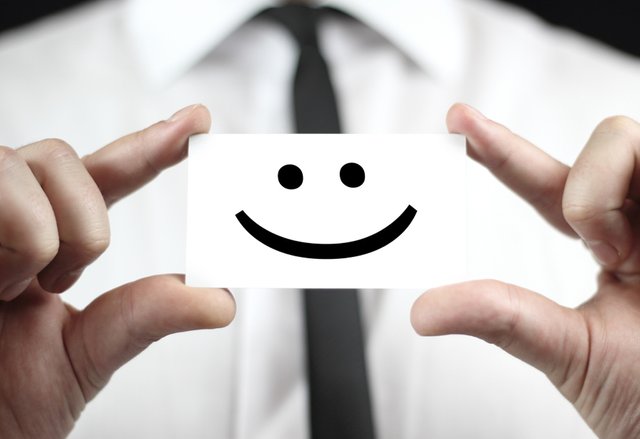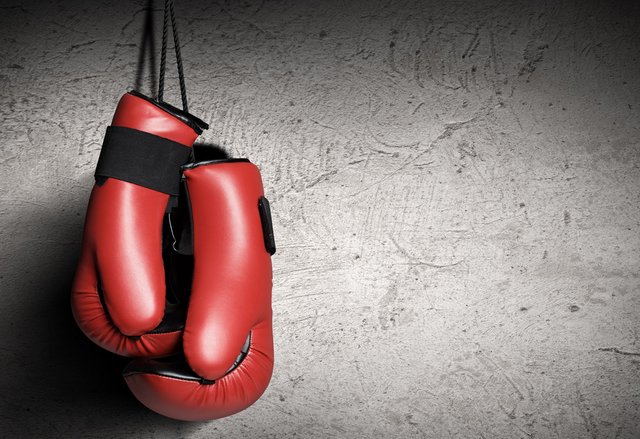Life Lessons I've Learned from Charlie Shrem's Prison Stories

Lately I’ve been hooked on reading the captivating prison diaries of @charlieshrem. Some of his stories have made me reach for a tissue or two. From the titles he read (including Dark Places and World Without End) to the goodbye hugs he embraced with his family, reading Charlie’s journal is one hell of an emotional rollercoaster.
Whether he’d agree with me or not, it’s clear there are some profound life lessons to draw from his writing. Lessons of empathy and humility, health and purpose. I want to share a few of those lessons in this post.
1: Optimism is your only choice.
That he neither complained nor felt sorry for himself in prison is a testament to Charlie’s resolve to positive thinking. Optimism is behaving in a way that spites your bad circumstances, which results in the victory of your own mental resilience. Instead of being consumed by anxiety at the announcement of his 2-year prison sentence, Charlie breathed a sigh of relief. (His maximum sentence could have been 30 years.) Optimism is a process of rewiring the brain, realizing that you could always be worse off.

“Over shadowing the camp compound was a maximum security prison surrounded by high walls and barbed wire. Every day this would serve as a reminder that if you misbehave, that is where you are going.”
2: Rule life; don’t let life rule you.
Venturing into a new environment requires the open-mindedness to embrace it. Prison, as Charlie explains, is no exception. He could have easily fallen into the trap of stress eating and watching TV, but he didn’t. Yoga and reading were part of his routine. He would also engage in religious debates with Omar, a Muslim imam, to keep his mind sharp in an otherwise mind-numbing atmosphere. Charlie made it out alive because he took charge of his life.

“I was going to use my year wisely and take myself out of my comfort zone because it was the only way I would get out of here a better person.”
3: Relationships are the oxygen of life.
Charlie’s girlfriend, Courtney, seemed to play a crucial role in his psychological well-being. He spoke with her on the phone almost every morning and evening while in prison. During the day, they’d exchange emails. The couple was only allowed to meet face-to-face once a month, but their mutual love helped them both survive the grim circumstances.

“After my shower I spoke to Courtney and had a 12 minute call. This used up my 10 minute allocation for the day and 2 minutes of tomorrow but it was my first day and [I] really needed to talk to her.”
4: Humor is the universal antidote.
From personal experience, I can say that humor is often used as a coping mechanism. Sometimes the thought of an impending stress can only be digested with laughter. One inmate informed Charlie not to eat any “candy” that he found on his pillow. The inmate was just joking around, attempting to make light of a dark situation. On a different day, a group of inmates glared at Charlie due to a slight misunderstanding…

“[Omar] came back and told me that I smelled up the whole range because I did not courtesy flush. Courtesy flush? Yes, while you are sitting on [the] toilet you have to flush every minute or so because the water starts smelling up the place.”
Humor, in whatever capacity, is a temporary reprieve from the realities of life we seek to avoid.
5: Find your purpose and make it your life’s work.
Charlie took a hit for the Bitcoin community. From the time of the verdict until his self-surrender – spending days “living like it was [his] last” – Mr. Shrem was involved with what he loved: Bitcoin. He was dedicating his efforts to a cause greater than himself.

Passionately written in the following court statement, Charlie’s life mission is one of the most emotional and compelling in the digital age:
“Bitcoin is what I love and all I have. It’s my whole life. It’s what I’m on this earth to do, is to help the world see a financial system that does not discriminate and provide for corruption, and I think that bitcoin will do to money what e-mail did to the postal service. It allowed everyone to be equal.”